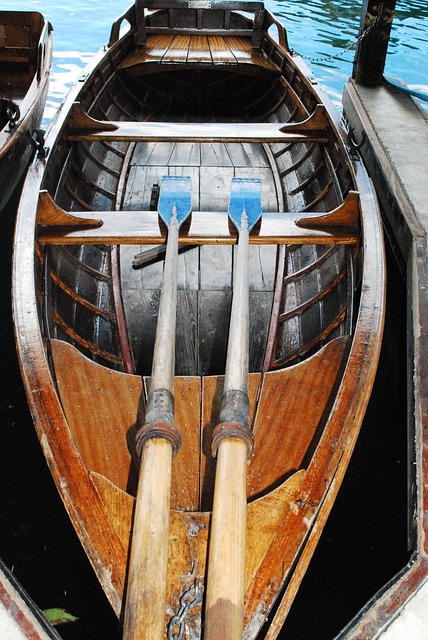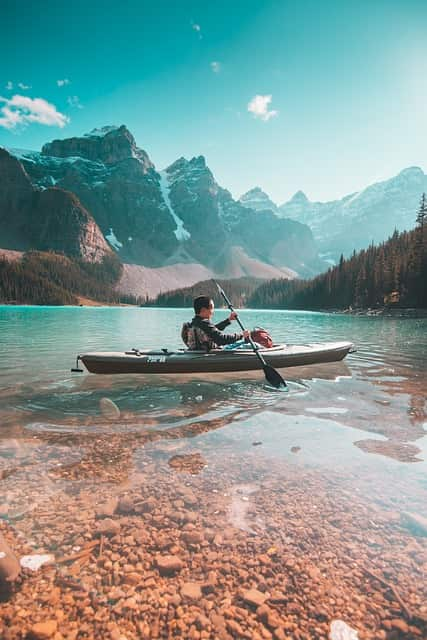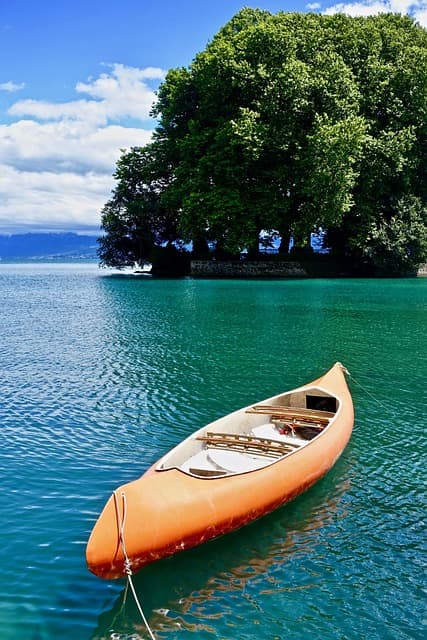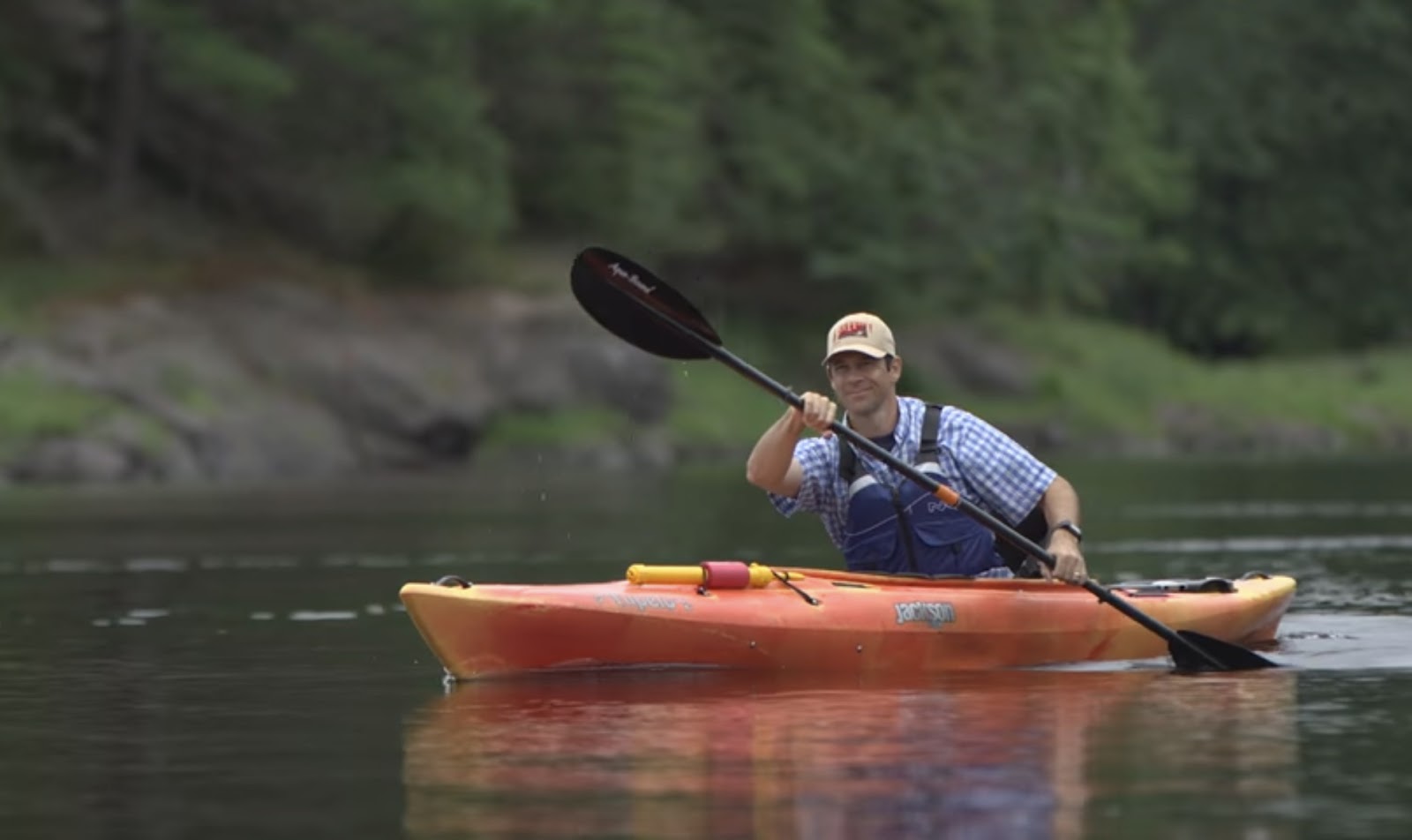Navigating the regulations and laws concerning kayaks and canoes in Indiana has become a simpler endeavor, thanks to the prudent decisions of the governing authorities. Government interference has been curtailed, favoring a less intrusive approach. Exemption from registration is granted to non-motorized vessels under the Indiana canoe and kayak laws. However, adherence to certain requirements is mandatory, including the presence of a life jacket for each individual on board and a distinct sound-producing device like a whistle.
The Indiana Department of Natural Resources holds the responsibility for enforcing and overseeing boating regulations across the state. This duty is not only limited to the Department; State Police officers, as well as game and fish Wardens, are also entrusted with the enforcement of regulations pertaining to boating, canoeing, and kayaking.
- Canoe Registration – Human-powered boats that lack a trolling motor are not obligated to undergo registration;
- Titling – The necessity of titling your canoe or kayak in Indiana hinges on the presence of a motor. Non-motorized vessels require no titling, whereas motor-powered vessels necessitate both registration and titling. Refer to the subsequent section on “Title” for further insights;
- License Requirements – If propulsion is solely achieved through human effort, registration is not obligatory;
- Operator Prerequisites – Operating an unpowered canoe or kayak doesn’t necessitate any certification or specialized training;
- Mandatory Boating Education Certification – Individuals aged 15 and above, without a valid driver’s license in Indiana, must obtain a boating safety card to operate a motorized vessel with an engine exceeding 10 hp. Although those over 18 are exempt from needing a certification card, enrolling in the course is a recommended measure for personal security and reassurance;
- Operating Under the Influence – The operation or control of any watercraft, including motorboats, canoes, and kayaks, while under the influence of substances like alcohol or drugs, is strictly prohibited. A blood alcohol content of 0.08% or higher constitutes a violation of boating under the influence (BUI) laws;
- Emergency Equipment Prerequisites – The state of Indiana, mirroring other jurisdictions, necessitates the presence of wearable personal flotation devices accessible to all occupants of a vessel;
- Emergency Equipment Specifications – Essential emergency equipment for your vessel (canoe/kayak) includes;
- U.S. Coast Guard-approved life jackets of appropriate size and type for all individuals on board;
- A white navigation light for situations of low visibility such as nighttime, dawn, dusk, fog, or heavy rain. This light must be visible from all angles or deployable with ample time to prevent collisions;
- A sound-producing device, typically an emergency whistle capable of emitting a distinct and audible sound;
- A visual distress signal is not obligatory unless you are on Federal waters between sunset and sunrise.
Do I Need a License for Canoeing or Kayaking in Indiana?
When it comes to enjoying Indiana’s waterways via non-motorized vessels like canoes and kayaks, the hassle of licensing, registration, and titling has been mercifully removed. These tranquil vessels, devoid of electric or other motor propulsion, glide unburdened by bureaucratic constraints. Furthermore, even if one brings their canoe or kayak from another state, where it’s dutifully registered, and employs it within the borders of Indiana for a period of fewer than 60 days, no registration is required.
Navigating Title Requirements for Canoes and Kayaks in Indiana
Delving into the realm of titling non-motorized vessels reveals a more nuanced landscape. Searching the Indiana boating laws, no explicit statutes governing the titling of such vessels could be located. In instances where a canoe is equipped with a motor and necessitates registration, the prospect of titling emerges. However, exceptions to this rule exist. No titling is demanded if the vessel is:
- Devoid of motorization;
- Acquired before January 1, 1986;
- Valued under $3,000 when originally purchased;
- Individually crafted for personal use.
License and Registration for Motorized Canoes and Kayaks in Indiana
Should the peaceful paddle be replaced by the hum of a motor, registration becomes imperative. Motorized canoes, irrespective of power source or motor type (be it gas or electric), must secure registration (Certificate of Number) and don the corresponding decals/numbers within Indiana’s waters. An officer of enforcement may request the Certificate of Number for inspection purposes.
Canoe and Kayak Operator Guidelines in Indiana
For those embarking on motorized adventures in Indiana’s waterways, possessing a valid driver’s license is a prerequisite, given the motor’s potency surpasses 10 hp. While electric motors present no age restrictions for canoe operation, individuals aged 15 and above without a valid driver’s license can steer motorboats surpassing 10 hp. This is contingent upon completion of an official boater safety course and issuance of an identification card by the relevant bureau. Opting for safety certification is not only wise for personal well-being but may also translate into insurance benefits.
Navigating Intoxication Laws While Canoeing or Kayaking in Indiana
Amidst the serenity of Indiana’s aquatic beauty, the consumption of alcohol is prohibited while operating watercraft. Any individual piloting a watercraft, including canoes, kayaks, and more, is deemed “intoxicated” if their blood alcohol content exceeds 0.08%. Even substances such as prescription drugs, marijuana, or narcotics can invite charges of impaired boating if sobriety tests falter or actions betray signs of intoxication.
Equipping for Emergencies: Indiana’s Canoe and Kayak Essentials
Every state offers its unique take on mandatory equipment. While personal swimming prowess may foster a sense of self-reliance, adorning a Personal Flotation Device (PFD) has transformed into a habitual safety ritual. The legal requisites for Indiana’s waterborne journeys entail:
- PFD: A Type I, II, III, or wearable V PFD, readily accessible and sized for every soul on board;
- Throwable Flotation Devices: Absent in canoes and kayaks;
- Manual Bailing Device: Not obligatory but highly advisable;
- Visual Distress Signals (VDS): Only mandatory on Federally-controlled waters after dusk;
- Navigation Lights: Unpowered vessels necessitate bright white lanterns during sunset and sunrise navigation;
- Sound Devices: Canoes and kayaks mandate loud sound-producing devices, excluding human voices;
- Fire Extinguishers: Dispensed with for canoes and kayaks, owing to their nature;
- Emergency Locator Beacons: Not legally required but a valuable addition for every paddler.
The Quest for Life Jackets in Indiana’s Waterways
In the tapestry of Indiana’s canoeing and kayaking landscape, all vessels, regardless of their size, beckon the presence of US Coast Guard-approved personal flotation devices. While the under-13 crowd must wear approved PFDs while their vessel is in motion, some vessels, like racing canoes and kayaks and wind- or paddle-powered racing vessels, are exempt from PFD obligations. Evidently, the integrity and fit of these life-saving devices are paramount.
Sounding the Emergency Alarm: Indiana’s Boating Law
Within Indiana’s aquatic realm, every vessel must possess a device capable of emitting a resonant clamor. Unpowered and powered canoes and kayaks share the responsibility of carrying a noise-making apparatus, with the mandate specifying a sustained blast audible for a mile or more. This task befalls devices like whistles, air horns, or other alternatives, with the Hyper-Whistle emerging as a standout contender.
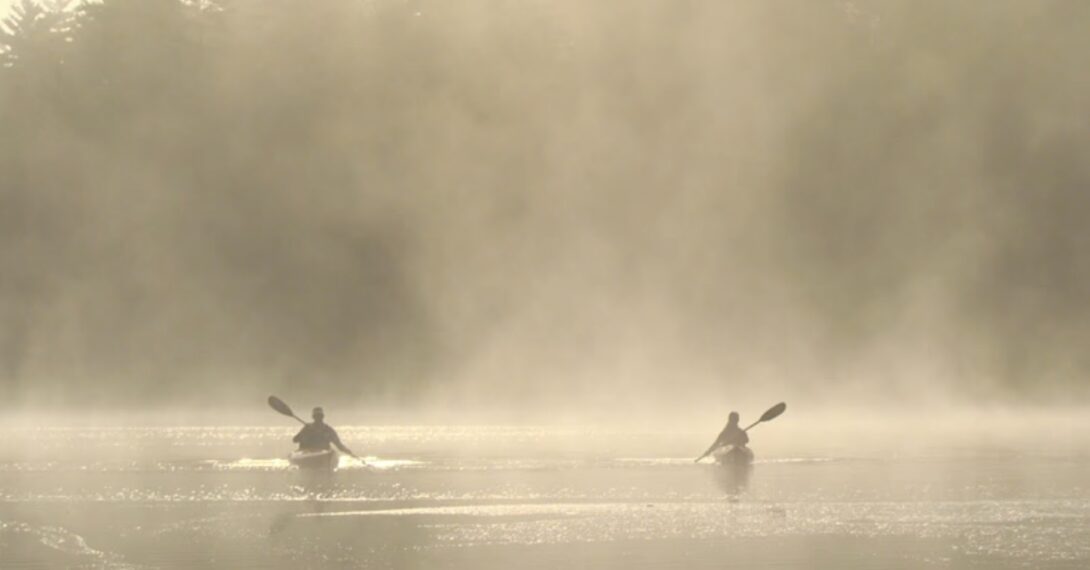
Guiding the Way: Canoe and Kayak Lighting
The navigation of Indiana’s waters after dark prompts a need for illumination. Unpowered canoes and kayaks demand at least a luminous white lantern, ensuring visibility from all angles to thwart potential collisions. Additionally, the State encourages red and green bow lights for kayaks and canoes navigating the dark waters. The stern-mounted white light, obligatory if vessels are moored offshore overnight, is an integral part of this nocturnal voyage.
Fire Safety on Indiana’s Waterways
The singularity of canoes and kayaks inherently negates the need for fire extinguishers, given their simple, watery environs. In the unlikely event of a conflagration, a splash of water or a controlled capsize ought to extinguish the flames effectively.
In conclusion
In the heart of Indiana, a journey upon serene waters awaits those seeking solace and adventure. The complex tapestry of regulations governing canoes and kayaks reflects the delicate balance between safety and the freedom to explore the state’s aquatic beauty.
- As the sun sets on the tranquil lakes and rivers of Indiana, the regulations that guide the use of these watercraft reveal a landscape of thoughtful governance. The wise decisions of governing bodies have woven a framework that favors simplicity while ensuring safety. From the exemption of non-motorized vessels from arduous licensing to the meticulous equipment requirements for emergencies, the state has crafted a careful equilibrium;
- Yet beyond the boundaries of these regulations lies the true essence of the experience – the rhythmic sound of paddle against water, the sight of a setting sun casting a golden glow on the surface, and the thrill of embarking on an adventure that transcends legalities. The waterways, with their hidden coves and whispering reeds, invite us to explore not only the laws that govern them but also the deeper connection we form with nature.
So, as paddlers embark on their Indiana waterborne journeys, may they find a harmonious blend of compliance and spontaneity. While regulations set the stage for safety and order, the true magic lies in the unscripted moments – the gentle ripple of water, the echo of a bird’s call, and the shared laughter with fellow adventurers. In the end, it’s the balance between adherence to the law and the unbridled joy of discovery that makes each journey on Indiana’s waters an unforgettable experience.
